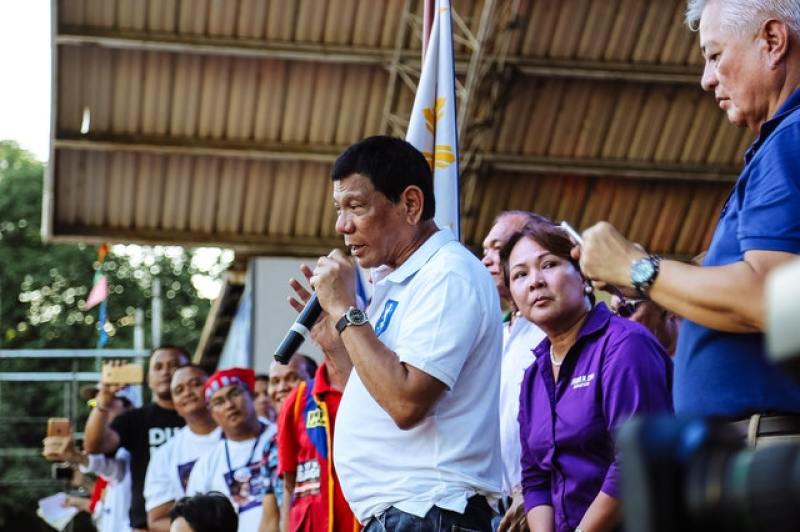
A report revealed that the Church in the Philippines experienced an increase in persecution under the regime of President Rodrigo Duterte.
The International Christian Concern (ICC) said that Catholics in the Philippines faced an increase in persecution under its sixteenth president from the very "start of his administration." While the Catholic church in the Philippines has been subjected to persecution in the past, it was never with as much intensity as it is under Duterte.
"The start of his administration began four years of heightened persecution of the Catholic Church in the country. The church was no stranger to persecution before Duterte's presidency but found itself consistently the target of derision and sedition charges from the president himself for speaking out against his policies," the ICC said.
The Voice of The Martyrs elaborated that Christians were normally persecuted in the Philippines' Mindanao region which is predominantly Muslim. The Philippine government has, for decades, been engaging with conflict against Islamist groups who desire "to form an independent Muslim state" and have "routinely threatened Christians" by driving them out of "Muslim-majority areas."
ICC revealed that the persecution was heightened because of Duterte's "drug war" that resulted in "extreme measures" against "suspected" drug addicts and eventually lead to extra judicial killings of "thousands of people."
Often the ones targeted by the Duterte administration are clergy men who spoke against such practices in order to stop the "drug problem." ICC cited Lingayen-Dagupan Archbishop Socrates Villegas as one of the clergy men who often spoke against Duterte and called his administration a "reign of terror."
"One of the policies that Duterte has enacted during his administration is the 'drug war.' His administration has targeted anyone suspected of being involved in the drug trade and uses extreme measures against them. This results in arrests, killings, and death sentences for those accused of involvement with the drug trade without proper legal procedure. As a result, his administration has killed thousands of people without allowing them a fair trial," ICC highlighted.
"Many clergy members have spoken out against this senseless taking of lives, invoking the government's wrath for doing so," it added.
ICC said the Duterte administration would often retaliate against the clergy by speaking out against them and the church. Duterte is said to engage in "red-tagging," calling his opponents "communist rebels or terrorists." There were also some clergymen who received death threats in 2019 while three priests were actually killed, one in 2017--Fr. Marcelito Perez--and two in 2018--Fr. Mark Ventura and Fr. Richmond Nilo.
"In response to church leaders speaking out against his drug war and other controversial policies, Duterte's administration has engaged in the 'red-tagging' of its opponents. Red-tagging is when Duterte's administration labels outspoken activists or religious clergy as communist rebels or terrorists, which gives them an excuse to arrest or prosecute these dissidents. Many priests have been targeted in this way throughout Duterte's presidency," ICC disclosed.
This report was actually affirmed as early as 2016 when the Union of Catholic Asian News (UCAN) reported that the Church in the Philippines "faces religious persecution," citing the "mounting church attacks over stance on morals and rights" due to social media trolls allegedly hired by the Duterte administration.
ICC said that Christian leaders in the Philippines have confirmed their conviction to speak out against the government amidst the persecution they experience especially now that the country will be preparing for its national elections in 2022, a time Duterte is expected to step down.























